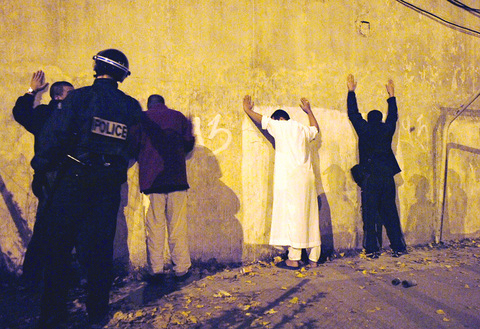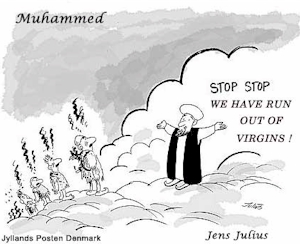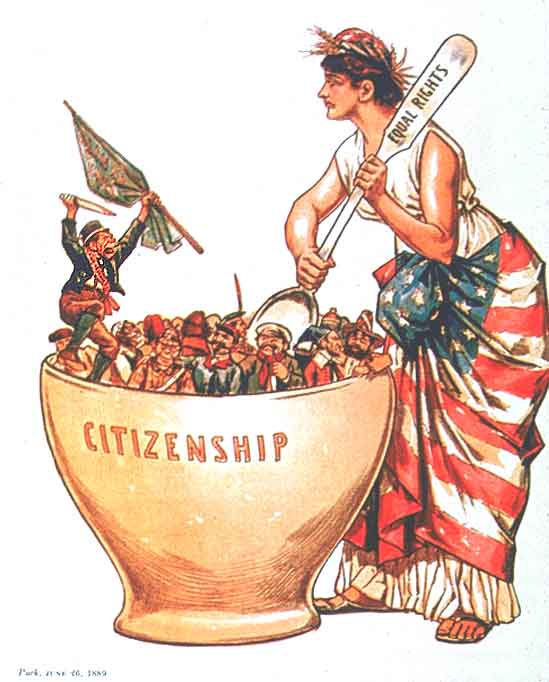Europe Should Make America's 'Melting Pot' Its Own
Why is it that the United States has a much easier time integrating immigrants into American society than the French have integrating newcomers into French society? According to this op-ed article from Mexico's El Universal, much of the reason is the deep-seated American desire to integrate immigrants, regardless of their nation of origin or immigration status.
By Gabriel Székely 
Translated by Richard Hauenstein
March 15, 2006
Mexico - El Universal - Original Article (Spanish) 
 Rioting By Muslim Immigrants in the Paris Suburbs
Rioting By Muslim Immigrants in the Paris Suburbs
Spread Across France Last Year, Highligting Concern
that the Country is not Doing a Good Job Integrating New
Arrivals Into French Society. (above and below).


 1998 Nobel Prize Winner in Literature, José Saramago,
1998 Nobel Prize Winner in Literature, José Saramago,
Advises More Circumspect Use of Press Freedom. (above);
[ Nobel Prize Winner José Saramago]
Nobel Prize Winner José Saramago]
One of the Cartoons Found Offensive By Muslims:
Is This Taking Press Freedom Too Far? (below).
 -----------------------------------------------------------------
-----------------------------------------------------------------
This past
Saturday, in a city famed all over the world for its porcelain, in Limoges,
France, an event occurred that was reported to us by the Madrid paper El País,
and which offers an account of one of the great challenges facing us today in
relation to the West's self-image, as a cultural concept or category.
Now then:
a Muslim couple of French nationality chose not to marry rather than comply
with legal requirements that insist she expose her face publicly, for a moment,
to corroborate that she is one of the two people requesting this ceremony,
presided over by civil authorities; she was even offered a separate room, and
could have returned to the ceremony with her face still covered. Who was right
here?
The
answer to this question may seem simple to those who are convinced of the power
of the secular state, but this view is contrary to the wishes of those who
profess the Muslim faith, and who only wish to uphold a tradition set down in
their own laws. Such cases have provoked something more than a sharp debate around
the world, a debate that is now taking place in the pages of some Mexican and
foreign newspapers. I think it’s important to vigorously put these thoughts together,
with some reflections that I hope will be useful.
The
writer and Nobel Prize winner José Saramago responds to those who, on the
matter of the now famous cartoons that ridicule the prophet Mohammed and which
saw the light of day months ago in a Danish newspaper, have come to the defense
of freedom of the press at all costs. They argue that the cartoons represent
reasonable criticisms of certain aspects of Muslim culture, such as unequal
treatment of women, Islam's social structure and its support for authoritarian
politics. In this way, they justify their irreverence toward religious symbols.
The
public has been especially confused by the argument that this so-called
irreverence is the nucleus of freedom in the West, and for cartoonists in its
media. Saramago asks, what would happen to any writer if, for the sake of
showing the fullness of liberty, he wrote an insulting article about his
editor; logically, to run the piece would exceed the limits of prudence, of
good taste, or whatever, and the editor is not expected to support the insults
of a radical hiding behind a noble principle to commit his act.
It
therefore appears as though it were a fundamental principle, that for the sake
of free expression it is acceptable to write or draw anything one wishes for
publication, in whatever circumstance. This seems reasonable, because only the
values that have flourished in the West for so many years are being considered.
But when questioned by men and women of other faiths and customs, such a
principle may be considered offensive when exercised; therefore, it necessary
for other values to intervene and to complement this principle [of free
expression]. Prudence and a respect for other cultures is a good example to
follow.
Another way
to analyze this clash of cultures is to look at immigration. The crisis a few
months ago with the Muslim population of Paris spoke not only to accumulated frustration
of mainly North African immigrants and their children at being marginalized or half-accepted
by the French. It also highlighted the determination of French Muslims to
affirm their culture, despite contradictory French laws and customs. This is
the great nightmare of nations in which immigration has grown so much.
 America's Melting Pot:
America's Melting Pot:
A Concept That is Worth Repeating.
----------------------------------------------------------
Why is
this problem occurring in France, but not the United States? Perhaps it’s
because in the U.S. there is greater insistence on labeling the concept, with
great precision, as a social phenomenon. This concept is aptly described by the "Anglicism"
the melting pot. Everyone who lives in
the United States "is cooked in the same pot" without ever
considering national origin or immigration status. Those who fail to accept
this will be rejected by the local [U.S.] culture. Of course, this alone doesn’t
mean that Latinos, Vietnamese or Africans are automatically integrated into U.S.
society.
In
Washington and in several U.S. states that border Mexico, it is feared that as
the years pass, the Latino population will not have been properly integrated
due to a lack of educational opportunities; or because of the desperate means utilized
to enter the country, Mexicans will cling to Mexican religious symbols while
making increased social demands in the United States. Few things cause a
greater bellyache for the typical North American, than seeing a parade of
Mexicans in downtown Phoenix or Los Angeles, carrying the Mexican tricolor [flag]
and another from the [Mexican] State of Guadalupe. Americans are disturbed by
these symbols, which they regard as the rejection by Mexicans of total
integration into the culture of the United States.
It is
hard to know what the reaction of Mexican society would be in the face of a
similar display, because the great majority of immigrants we have received have
distinguished themselves as businessmen, intellectuals and in other
professions. The exception may be Central American immigrants living in some
regions of the Southeast, where they occupy the lowest rung of the social
ladder, and have not been made welcome to integrate themselves into local
society; at times, they even suffer open discrimination.
We all accept
that diversity and tolerance in the face of the unknown are critical elements
for living together. The events described here show that the moment has arrived
to confront reality and give substance to our words.
Coordinator
of Advisors to the Secretary of Tourism